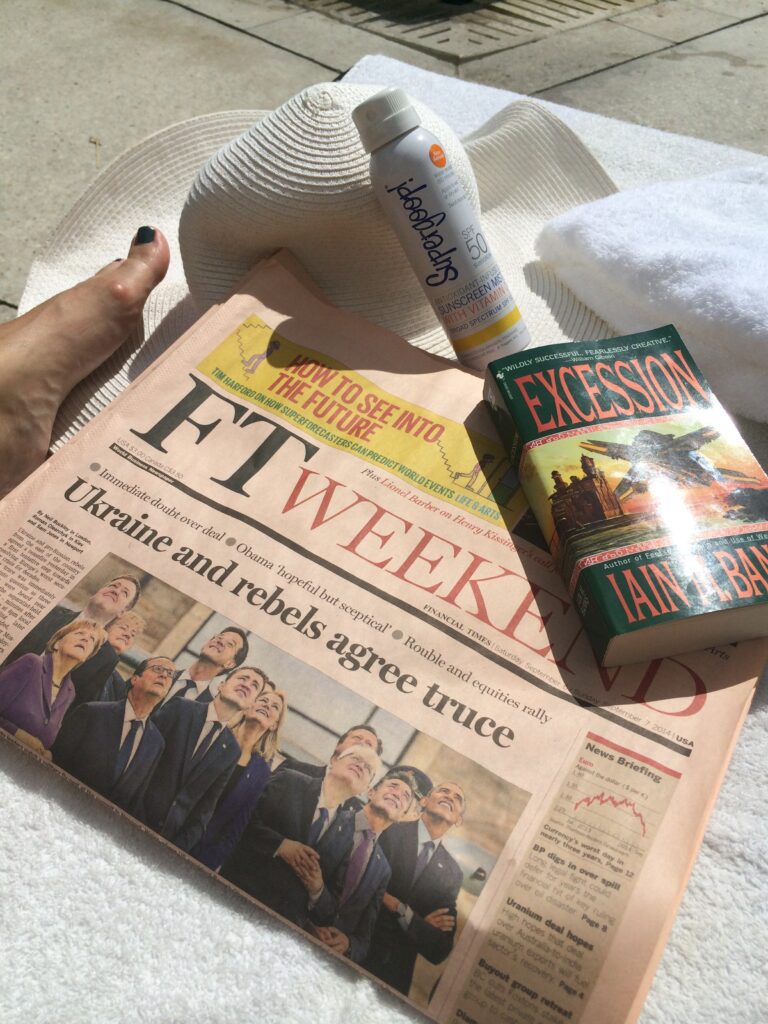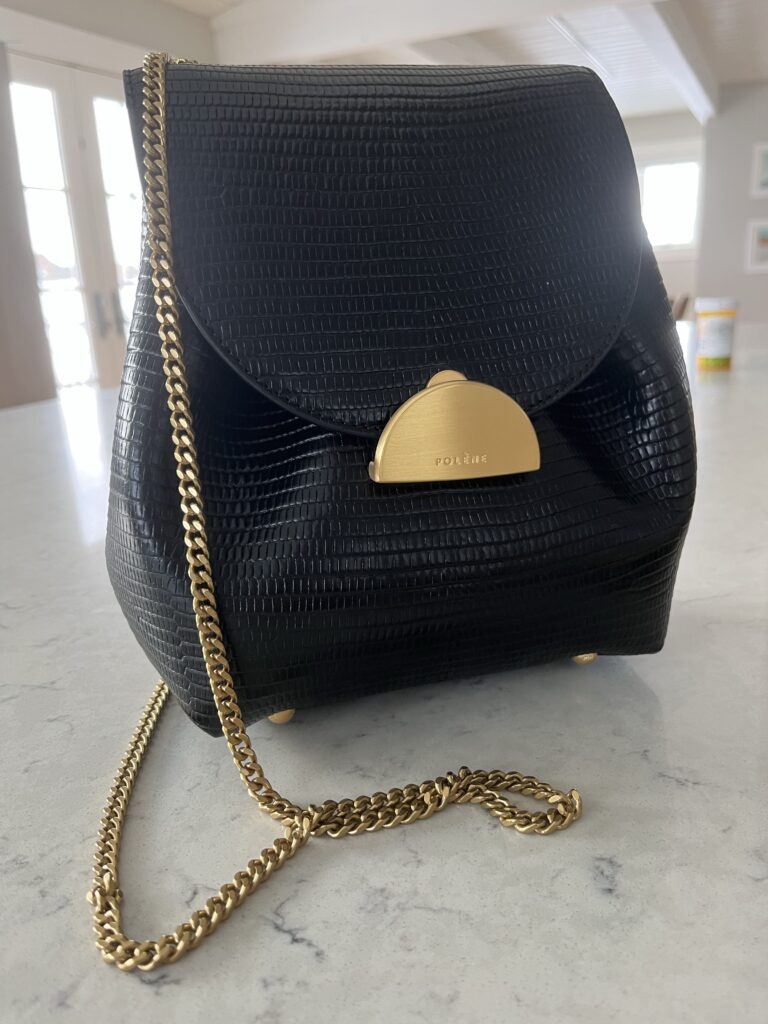I came across a list of 40 questions that Stephen Ango answers every year on Twitter today. It looked like a fun exercise so I thought I’d participate.
What did you do this year that you’d never done before? Bought a house & got my very first mortgage, moved to Montana, lived in Germany for a month, spent time on the Ionian and Adriatic Seas, and experienced -45 degree temperatures.
Did you keep your new year’s resolutions? I don’t make them but I did intend to write every single day (for the second year in a row) and I have so far accomplished it.
Did anyone close to you give birth? No
Did anyone close to you die? No
What cities/states/countries did you visit? Colorado, Montana, and Wyoming, Florida and Texas for states. United Kingdom, Germany, Albania and Greece for countries.
What would you like to have next year that you lacked this year? All the money for my venture fund and visas for freedom of movement for my friends and family.
What date(s) from this year will remain etched upon your memory, and why? June 18th was the date we closed on our homestead in Montana. August 1st was the day we moved in.
What was your biggest achievement of the year? Getting my family safely to a Montana homestead that is the first home we’ve ever owned.
What was your biggest failure? I don’t think it’s a failure, but I wish I got more done particularly when it comes to fundraising and deploying capital, but objectively I did as much as I could. I try to remind myself that the self is not an attack vector so this question is an opportunity to remind myself that failure is just opportunity.
What other hardships did you face? I got a very bad flu in the middle of purchasing the house in Montana. I watched the markets repeat elements of the crashes of 2001 and 2008 which allowed me to see how far I’ve come since my childhood trauma of my family’s bankruptcy on 2001.
Did you suffer illness or injury? The flu in May was awful, I’ve had a number of random infections and I live with chronic ankylosis spondylitis but I’m the healthiest I’ve been in years.
What was the best thing you bought? A house in Montana. But smaller things I’ve loved include a Lunya robe, Ariat boots, Skimms cotton tank bras, and my first go at Botox.
Whose behavior merited celebration? My husband has been an absolute superstar rolling with my crazy plans and I’ll be forever grateful he trusts me to see things that he hasn’t yet seen. I’ve written many a love letter this year to him and my appreciation for the ways big and small he makes my life better.
Whose behavior made you appalled? Not appalled necessarily but the dick riders are really a bummer. We are all sinners and ain’t none of us are saints.
Where did most of your money go? We bought a very nice piece of land with a gorgeous farmhouse on it. The second biggest expense after buying a house was medical bills. It’s fun to be sick in America. Third on that list is food both because my husband is a gourmet cook and because inflation on food was quite high.
What did you get really, really, really excited about? Being a homeowner has been exciting as hell. Everything about buying a house and making it our own has been amazing. I also spent a lot of time excited about DAOs and corporate governance, my founders, and spending a month next to the European Central Bank in Frankfurt.
What song will always remind you of this year? I don’t listen to much music so I don’t have an answer.
Compared to this time last year, are you: happier or sadder? Thinner or fatter? Richer or poorer? I am happier, poorer, and thinner than I was last year.
What do you wish you’d done more of? I have a lot of things I want to beat myself up about for not doing more, but I actually feel like I didn’t my time well this year. I don’t always need to be improving things. So I guess I wish I was comfortable doing less.
What do you wish you’d done less of? Beating myself up for not doing more.
How are you spending the holidays? I am in bed with my husband watching disaster porn movies while it is 45 degrees below Fahrenheit.
Did you fall in love this year? I am deeper in love than I was last year which is one of the benefits of always working on yourself and having a partner that also works on themselves.
Do you hate anyone now that you didn’t hate this time last year? I wouldn’t say I hate them but I’ve been disappointed with everyone involved in Elon Musk’s Twitter takeover.
What was your favorite show? The Peripheral. It is the adaption on Amazon of William Gibson’s most recent novels and it is stunningly good science fiction. I’ve enjoyed a lot of television this year though.
What was the best book you read? Hands down Peter Watt’s Blindsight which I cannot believe I didn’t read till this year. If you are autistic I in particular recommend it.
What was your greatest musical discovery of the year? Again I don’t really do music.
What was your favorite film? I’m not a big film person so I didn’t watch a ton of movies this year. I’m a TV person. But probably the Weird Al parody biopic. Extremely funny and very sweet. Worth taking the trouble to find on Roku.
What was your favorite meal? I’ve had so many amazing meals this year. Perfect Montana steaks is probably at the top but schnitzel in Frankfurt, branzino in the Mediterranean, BBQ in Austin, and stone crabs in Miami round out the list. I traveled a lot this year and that means I had a lot of great meals.
What did you want and get? A homestead in Montana.
What did you want and not get? A visa for a family friend. American immigration is extremely broken. I’m hoping I get the visa granted next year for them.
What did you do on your birthday? I discussed my “fundraise in public” for chaotic capital and spent it with Elle Morrill and my husband. Elle cooked for me and it was absolutely epic.
What one thing would have made your year immeasurably more satisfying? The American immigration system working. But that’s like asking for world peace. I spent a lot of time and social capital trying to get a visa that still hasn’t been granted.
How would you describe your personal fashion this year? Black. I mostly wear cotton black sweats and a long sleeve cotton tee-shirt. My biggest upgrade to that look was adding in a Lunya robe. But I also bought a bunch of chore clothing for working on the homestead. I also got to enjoy my “heat” wardrobe which is mostly Grecian gowns made by Norma Kamali.
What kept you sane? My therapist Dagmar and writing every single day.
Which celebrity/public figure did you admire the most? Folks hate this answer but I love Kim Kardashian. She works her ample ass off for her family business, spends her time working against the carceral state, makes a great bra and she started a private equity firm.
What political issue stirred you the most? The government’s interest in deciding what I do with my own body. I’m a libertarian because the very foundation of sovereignty rests on your right to control your own body. Though this issue is very closely followed by our inability to grant visas and bring immigrants to America in terms of animating my energy this year.
Who did you miss? I miss my grandmother Nanamai. She’s my mother’s mother. She’d be so proud of what I’ve done with my life. I wish she’d be been alive to wear one of my lipsticks. I wish she were alive to see the family life I’ve built. She passed on more than a decade ago and I’m still consumed by grief if I think about it too hard.
Who was the best new person you met? There are almost too many to chose from. Meeting in person my internet friends who got me through the pandemic is the correct answer. You know who you are. And I can’t wait to meet more of them. Internet friends are real friends.
What valuable life lesson did you learn this year? I learned a lot watching hero worshippers, I mean dickriders, beg their chosen figurehead to save them. But alas the only person who can save you is you.
What is a quote that sums up your year? “Fuck around and find out.” But in all seriousness just doing the thing and trying shit out is actually crucial in life and business.




